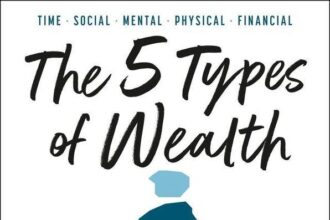Congratulations, you have been accepted to College. This is the letter that so many students hope for after they apply to college and wait for from weeks to months to get an answer. For some students, they are receiving these letters from colleges they have never applied to and may never have heard of. There are several programs where schools are now accepting students without the student having applied so that the acceptance letter comes as a very pleasant and unexpected surprise. You may ask why schools would do this and the reasons seem to be two-fold: to get to students who may not have considered applying to the college and to help schools increase their enrollment numbers in this extremely competitive environment.
As many colleges work hard to attract students, we still find that many low-income students are not applying to college or are not completing their applications often because of application fees, admissions essays or other barriers. In an effort to increase college opportunities, especially for low-income students, there are a variety of experiments going on around the country to have colleges admits students who have not applied to the school.
One of the largest program is the Common App Direct Admissions Program. Schools give The Common App the criteria for acceptance and The Common App matches students with a participating school in the student’s home state and then the student gets a letter of acceptance co-signed by the President of the Common Application and the Director or Admissions at the college. A portion of these students who receive acceptance letters from schools to which they have not applied will follow through and contact the school to complete their application and begin a conversation with the school. Many of these students may not have considered the school which has just accepted them and it will now open their eyes to schools that they had not considered.
These acceptances also allow the school to begin conversations with students they might not otherwise have reached. Not only will this help the students but it will also be beneficial to many of the participating schools in helping them increase their enrollment. There also are other programs which are run by local non-profits and other organizations which run in ways similar to the Common App program such as the Greenlight Match program. Currently, these are all pilot programs which are seeing if the college going rates of students granted direct admissions is higher than for similar types of students who are not granted direct admissions.
Mercy College in New York participates in two direct admissions programs; the Common App Direct Admissions Program and Green Light. Adam Castro, VP of Enrollment Management at Mercy College, says that these programs are extremely valuable for historically marginalized students who are being undermatched by their guidance counselors. “Out of the blue they are getting these offers of college admissions.” In these programs, students never get rejected by an institution, there is only positive reinforcement for them to go to college.
According to Jeff Gates, VP Enrollment Management at Utica College, it is exciting to take this step “to try and reach students who are mostly first generation and are low income.” These students often start the process and then get stuck and don’t follow through. With these direct admissions program, the College can talk to the student and get them excited about higher education before they start talking with them about finances. Jeff opined that these students are usually scared and nervous about college; they are hard to reach students who don’t finish the process. Utica would like more of these students and they need to show them that they are just as affordable as the State University of New York, SUNY.
Is this going to be the wave of the future where colleges invite students to attend as well as allowing students to apply? Will this open up opportunities for many students at colleges they had not considered and will it significantly decrease the stress involved in the whole college admissions process especially for low income and first-generation college students? So far, we there are several pilot programs operating. The schools with which I spoke felt very positively about the programs as they provided them with easier access to students as well as helping increase their enrollment of marginalized students which most schools are seeking in terms of enrollment diversification and expansion of access. We will have to revisit this in a few years to see if it has become a mainstream way for students to get into college.
Read the full article here










